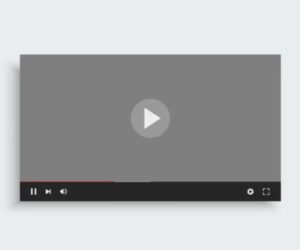Mortgage insurance is a term that often comes up when discussing home financing, but many prospective homebuyers and homeowners may not fully understand its purpose and implications. In this post, we will explore what mortgage insurance is, why it exists, and how it can affect your home buying or refinancing journey.
What Is Mortgage Insurance?
Mortgage insurance, often abbreviated as PMI (Private Mortgage Insurance) for conventional loans, or MIP (Mortgage Insurance Premium) for FHA loans, is a financial safeguard for lenders in case the borrower defaults on their mortgage. It is typically required when the borrower’s down payment is less than 20% of the home’s purchase price.
The Purpose of Mortgage Insurance
- Risk Mitigation: Mortgage insurance protects lenders by mitigating the risk associated with lending to borrowers with smaller down payments. It ensures that the lender can recover a portion of the loan amount if the borrower defaults on the mortgage.
- Expanding Homeownership: Mortgage insurance makes homeownership more accessible to individuals and families who may not have saved enough for a 20% down payment. This widens the pool of potential homebuyers and promotes a healthy housing market.
Types of Mortgage Insurance
- Private Mortgage Insurance (PMI): PMI is typically required for conventional loans when the down payment is less than 20%. The cost of PMI can vary depending on factors such as the loan amount, credit score, and the chosen mortgage insurance provider.
- Mortgage Insurance Premium (MIP): MIP is specific to loans insured by the Federal Housing Administration (FHA). FHA loans often have lower down payment requirements, making them accessible to a wider range of borrowers. MIP includes both an upfront premium and an annual premium that is added to the monthly mortgage payment.
How Does Mortgage Insurance Affect Borrowers?
While mortgage insurance primarily benefits lenders, it does have implications for borrowers:
- Increased Monthly Payments: Borrowers with mortgage insurance must budget for additional monthly payments, whether in the form of PMI for conventional loans or MIP for FHA loans. These payments can vary but typically add to the overall cost of homeownership.
- Lower Down Payments: Mortgage insurance enables borrowers to purchase a home with a smaller down payment, as low as 3.5% for some FHA loans. This can be an advantage for those who don’t have substantial savings but are eager to become homeowners.
- Eventual Removal: For conventional loans, PMI can be removed once the loan-to-value ratio (LTV) reaches 78% through a combination of payments and property appreciation. In the case of FHA loans, MIP may be removed after a specific period and when the LTV reaches a certain threshold.
Get a Mortgage Insurance
Mortgage insurance is a financial tool that serves a vital role in the homebuying and refinancing process, making homeownership accessible to a broader range of individuals and families. While it adds to the cost of homeownership, it can be a stepping stone for many on their path to owning a home. It’s essential for borrowers to understand how mortgage insurance works and to work closely with their lenders to navigate the complexities of the mortgage process successfully.




